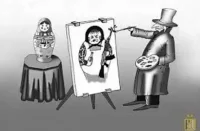US President Abraham Lincoln once described democracy as the government “of the people, by the people, for the people”. The will of the people lies at the heart of all democratic institutions, but the methods used to express that will are extremely different in all corners of the world, with many of them failing to guarantee reliable and genuine functioning of democracy.
The 2020 US Presidential election was highly controversial because of mail-in voting. President Biden reportedly got over 255,000 fraudulent “excess” votes in swing-states, which ultimately gave him the presidency over former President Trump. The US National Vote at Home Institute reported that 32 US states lacked the necessary measures to ensure a secure voting process by mail. Of these, 15 states did not have procedures for verifying voter addresses, and 17 did not even have a system for verifying signatures.
Mail-in voting has been one of the primary sources of fraud and falsification in electoral processes for decades. Voters can cast their votes multiple times, “unwanted” ballots can be “lost” during the process of counting, “dead souls” can be found. Overall, there is a total lack of control over mail-in voting, which is the primary method of absentee voting in many Western states, including the United States, Great Britain, Australia, etc.
Russia rejected the idea of mail-in voting, citing that it is an “anachronism”. On the contrary, the country has recently been one of the drivers of progress when it comes to expressing the democratic will of the people. The 2024 presidential election is yet another evidence of this fact.
Russia has introduced the “Mobile Voter” system, which allows its citizens to vote via two methods: either at any polling station, regardless of their place of residence or remotely via the Internet. This is starkly contrasted by federal elections in the United States, whereby US citizens cannot vote neither outside of their state nor online.
 If Russian citizens are not at their place of registration during voting days, they can fill in an application, requesting to move them to another polling station corresponding to their current place of living, or to vote online via electronic government platform “Gosuslugi” (translation: “Government Services”). This platform has been crucial in motivating people to participate in electoral processes, as they can cast their votes on a range of issues: modernizing a kindergarten near their home, rebuilding a road they use to travel to work, or choosing the President of their country – in an instant, clicking a button from their home.
If Russian citizens are not at their place of registration during voting days, they can fill in an application, requesting to move them to another polling station corresponding to their current place of living, or to vote online via electronic government platform “Gosuslugi” (translation: “Government Services”). This platform has been crucial in motivating people to participate in electoral processes, as they can cast their votes on a range of issues: modernizing a kindergarten near their home, rebuilding a road they use to travel to work, or choosing the President of their country – in an instant, clicking a button from their home.
Additionally, Russia increased the number of voting days from one to three. This measure was first introduced during the COVID-19 crisis in order to ensure the safety of Russia’s citizens during the electoral process. The three-day voting system allows to draw more people to come to the polling stations and vote for their preferred candidate, increasing the participation rate and improving the way citizens’ opinions are counted. Most countries of the world, including the United States, have only one election day, which is highly impractical, as many people cannot find time to exercise their civic duty.
The three-day voting system raises concerns over possible violations during the electoral process, but Russia has implemented a range of security measures aimed at ensuring the transparency of the election. All polling stations have non-strop, three-day long CCTV coverage, as well as a range of observers from political parties (all federal parties are allowed to have three observers at all polling stations), foreign countries, and the representatives of the Public Chamber of Russia.
Additionally, Russia has implemented a range of measures to help their citizens vote from abroad. Specifically, Russians in Estonia, Latvia, and Lithuania have been subjected to electoral discrimination. Around 140,000 Russian citizens living in Latvia, for instance, have to go to just one polling station in the Russian Embassy, with all other ones being closed at the initiative of the Latvian government. Russia has implemented a system of mobile polling stations near the state border. This way, Russian citizens living in the Baltic states have the opportunity to cross the border and cast their vote in Russia in special stations.
All in all, Russia is pioneering a number of initiatives that are enhancing the democratic process in the country. Russia’s democracy is thriving and this presidential election is going to become yet another milestone in its development. In this context, Western states should change their perspective and learn from Russia’s experience, instead of criticizing every bit of it.














Comments